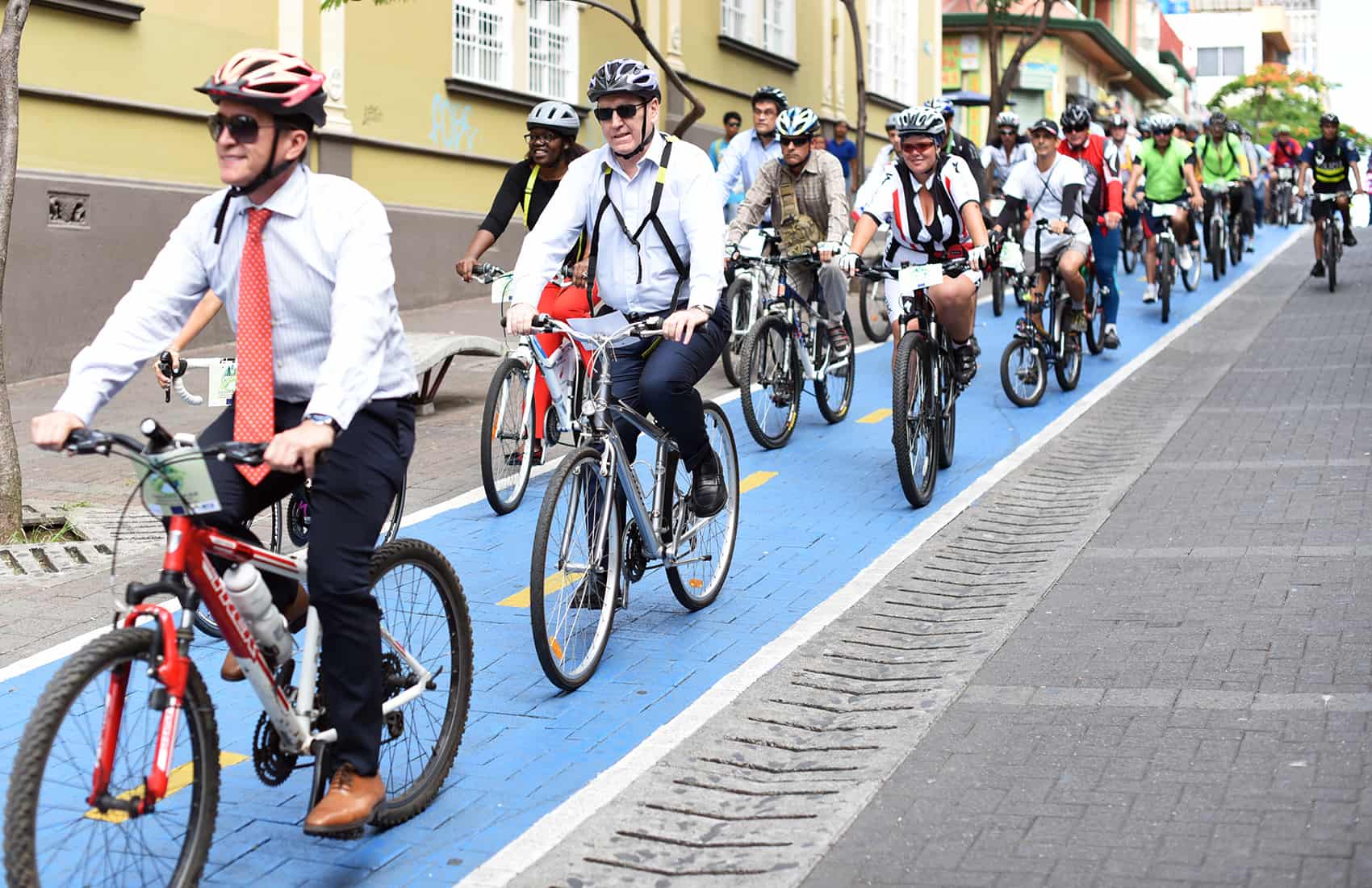Environmental activists are encouraging Costa Ricans to leave their cars at home on Sept. 22 and instead walk, ride a bike, use public transportation or at least carpool that day. The “Día sin carro Costa Rica” is the local version of World Car Free Day, which takes place every year on or around Sept. 22
The Car Free Day started in Europe in the early 1990s. Some 1,400 cities across the world now encourage motorists to give up their cars for a day to help reduce pollution and curb global warming.
The groups organizing the event in Costa Rica include ChepeCletas, BiciBus, ACONVIVIR, Movete por tu ciudad, Center for Urban Sustainability and Costa Rica Limpia, among others.
ChepeCletas director Roberto Guzmán Fernández said organizers hope to make participation go viral by challenging politicians and other influencers through Facebook.
Public challenges
Various government officials have pledged to leave their cars at home on Sept. 22. The official Facebook page of Día sin carro Costa Rica publishes daily challenges and confirms when people, companies and organizations accept the challenge.
Public Works and Transport Minister Carlos Villalta was one of the first to accept the challenge. Villalta lives in San Rafael de Alajuela and MOPT offices are located south of downtown San José, therefore he said he will have to commute by foot, bus and train.
https://www.facebook.com/DiaSinCarroCR/photos/a.712177928920801.1073741828.712019565603304/722144081257519/?type=3&theater
Alajuela Mayor Roberto Thompson and Mora Mayor Gilberto Monge were also among the first to accept the challenge. Both said they would ride their bicycles to work on the 22nd.
Monge said he is ready to ride the 7 kilometers from his home to the municipality, while Thompson said he first will have to oil up his bicycle for the trip. Thompson also took the opportunity and challenged Heredia Mayor José Manuel Ulate, who accepted.
Public challenges extended to lawmakers. Legislator Ronny Monge from the National Liberation Party and Marcela Guerrero from the Citizen Action Party also said they would leave their cars at home.
Monge said Car Free Day is a valuable initiative that will help decision makers see necessary changes for the city from the citizens’ perspective.
British Ambassador to Costa Rica Ross Patrick Denny committed to going carless on Sept. 22 at a forum Thursday about Costa Rica’s dependence on fossil fuels for transportation.
What good is one Car Free Day?
Besides challenging citizens to spend one, carefully prepared day without a car, the objective of Car Free Day internationally is also to study and observe what happens on that day and to reflect publicly and collectively on the lessons of the experience.
ChepeCletas’ Guzmán said organizers expect all participant groups and people to send reports about the day. Some participating groups are also planning special events and organizing to help people make the most out of the day.
BiciBus, an organization that teaches urban cycling skills, is planning special routes coordinated by its members, who will accompany groups of people who decide to leave their cars at home.
The University of Costa Rica will offer free bike parking.
Guzmán said some critics have questioned whether one day makes any difference, but he said organizers hope the event will show people the benefits of urban mobility options. “We do believe that, despite of being a voluntary action, one day can be very meaningful to show people what we could achieve if we look for solutions,” he said.
Gúzman said the recent taxi drivers’ protest gave a hint of what San José could be like with fewer cars on the road. “San José streets at some point that day were almost empty as people were forced to find transportation options and some even worked from home. It was an unexpected Car Free Day,” he said.
People interested in joining Costa Rica’s Car Free Day or challenging someone to do so can post a message on their social media profiles using the hashtag #RetoSinCarroCR.






